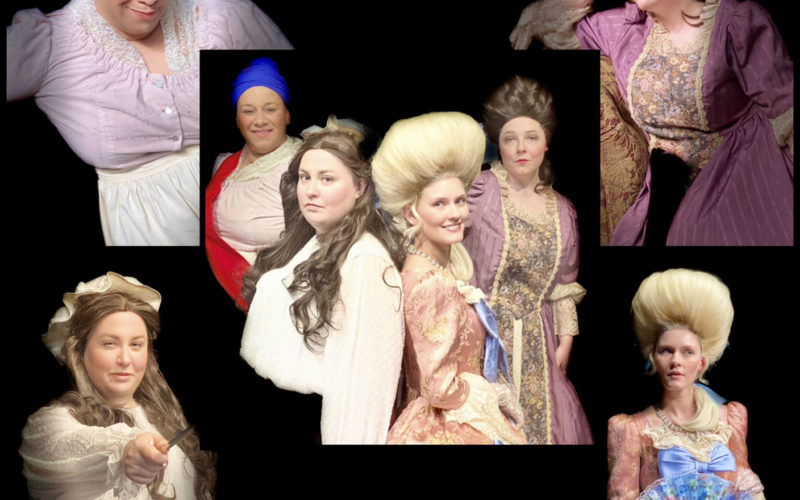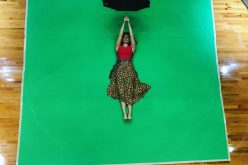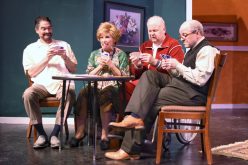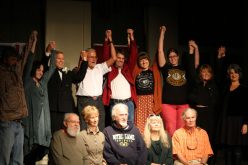BECCA MARTIN-BROWN
bmartin@nwaonline.com
The play opening May 6 at Arkansas Public Theatre is not the play you’d guess if you heard “French Revolution.” No one sings. No one marches. And no one on stage is male.
Lauren Gunderson’s “The Revolutionists” might be set anywhere between 1793 and now — except it wouldn’t have the gorgeous costumes. It’s about four “badass” — pretty much everything printed about the show includes the word “badass” — women who want to change the world. The Denver Post called it a “historical comedy” — and that’s the one thing it isn’t. It’s funny, but never without wisdom inside the wit. It’s tragic, as all stories that include a guillotine must be. And, as Gunderson herself says, “hell, yes, this is political.”
“The play is about a moment in history where the rich and poor were light years apart in lifestyle, the country was in multiple wars, the debt was huge, the workers overtaxed, trust in the government was nil, the leaders were corrupt and greedy, [there was] racism, sexism, poverty, violence, extremism,” Gunderson writes. “The only difference between them and us is the year and the continent.”
So here’s the premise: Olympe is a playwright; Marianne is a Black woman who is fighting for the rights of her people not only in France but in the Caribbean; Charlotte is a determined young assassin; and Marie is … well, Marie Antoinette. You know how her story ends, but in this play, she gets to be a real person.
“In ‘The Revolutionists,’ she is looking for help from the playwright Olympe for a rewrite,” says actress Juliette Robinson. “She loves her people and her country; she just needs better press.”
Marianne and Charlotte also come to Olympe because they need her words. Marianne needs pamphlets and powerful calls to protest. Charlotte wants last words worth dying for — because once she assassinates journalist Jean-Paul Marat, she will be executed.
And Olympe is overwhelmed, confused — and frightened.
“She cares deeply about her friends and about the impact she can make on the world,” says Mary Maxwell-Dispensa, a talented actress getting her first real star turn at APT. “She also struggles to take decisive action and has a lot of anxiety about her future.
“I really identify with that struggle, and it’s been really moving to get to explore that aspect of the character. She wants to make a difference so badly, and she is constantly in a balancing act between her ego and her uncertainty,” Maxwell-Dispensa says. “This makes her so real to me, and I think helps to drive home the fact that when it comes down to it, she is just like any other person. Flawed, but full of good intentions.”
“Charlotte Corday is “fierce and driven and sure that she’s got the answers — even when she’s not so sure,” says Rachel Mills, most recently seen at APT in “Avenue Q.” “She wants so much to DO something. To effect change around her. To be a solution to the problems of her family and neighbors. I definitely feel a kindred spirit with her in those ways — even if I am not as bold and brash.”
And Marianne, a “culmination of lots of African-American women’s stories,” “is a mom, a wife, a daughter, who strongly believes in what she thinks is right and will fight with everything in her being — and everything in her life,” says Delia, the APT actress who only uses one name. “She is a bold woman who is told to be quiet and refuses. I feel so honored to play her. She challenges everyone and isn’t afraid to say ‘This is the problem. We need to talk about it. We need to fix it.’”
That is, in fact, the whole point of “The Revolutionists:” Women’s fight for “égalité” — political equality — is far from over.
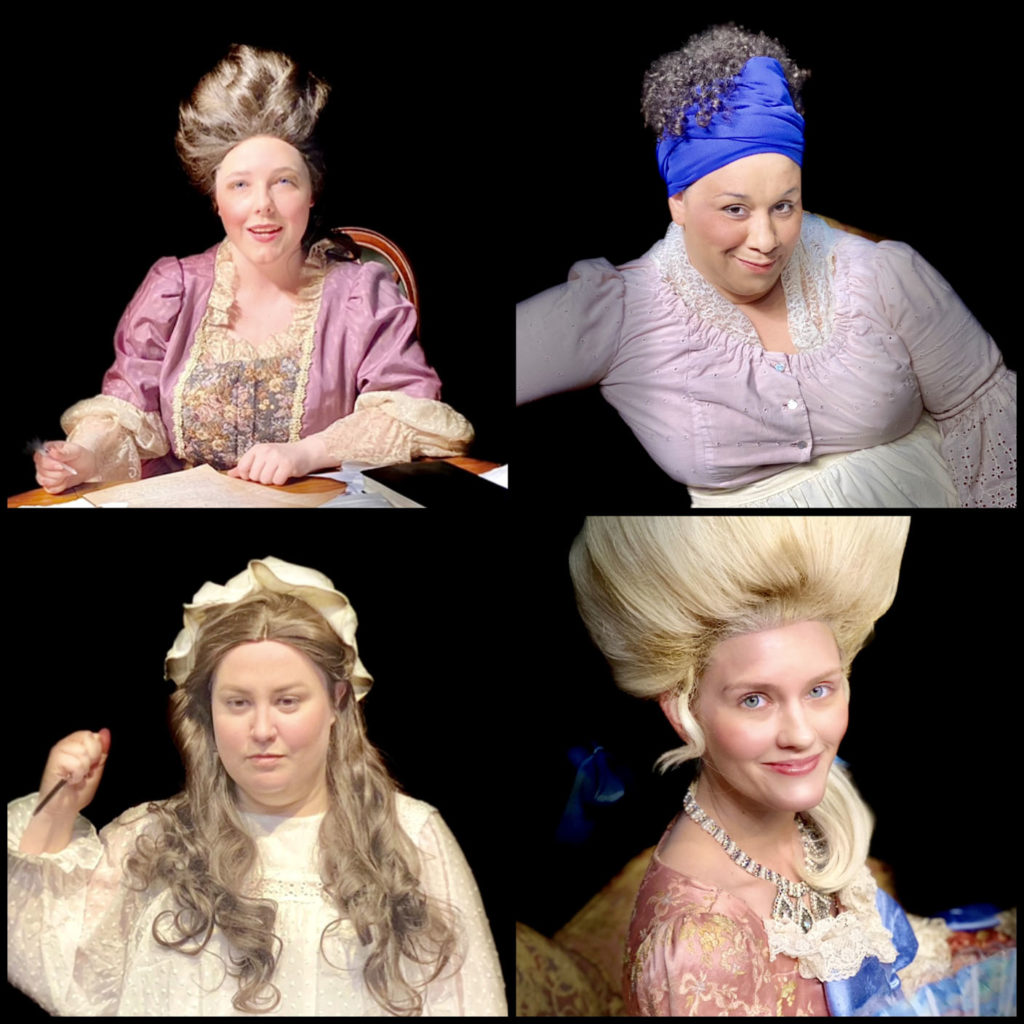
“I want there to be a multitude of conversations after seeing the show — how power can be feminine, how fear isn’t weakness, what it truly means to be brave or revolutionary,” says Mills. “I want everyone in the audience to see themselves in these characters and to go home thinking and talking about what makes them feel powerful and how they can own that power.”
“I hope that our audience will reflect on what the show has to say about women today,” agrees Maxwell-Dispensa. “Yes, it’s set during the French Revolution and yes, we have come a long way since then. But I think the inclusion of modern vernacular and tone is very intentional in the point that the struggle is ongoing. Women are still fighting for their rights, fighting to be heard. The issues in the play of gender inequality, of racial prejudice, and the intersection of the two, they still apply today. And I think it’s important to generate conversations around that.”
“I hope our audience leaves and stays empowered and inspired by these characters,” concludes director Joseph Farmer. “I was honored to be chosen to bring this story to life.”
__
FAQ
‘The Revolutionists’
WHEN — 8 p.m. May 6-7 & May 12-14; 2 p.m. May 15
WHERE — Arkansas Public Theatre at the Victory in downtown Rogers
COST — $20 & up
INFO — arkansaspublictheatre.org, 631-8988

